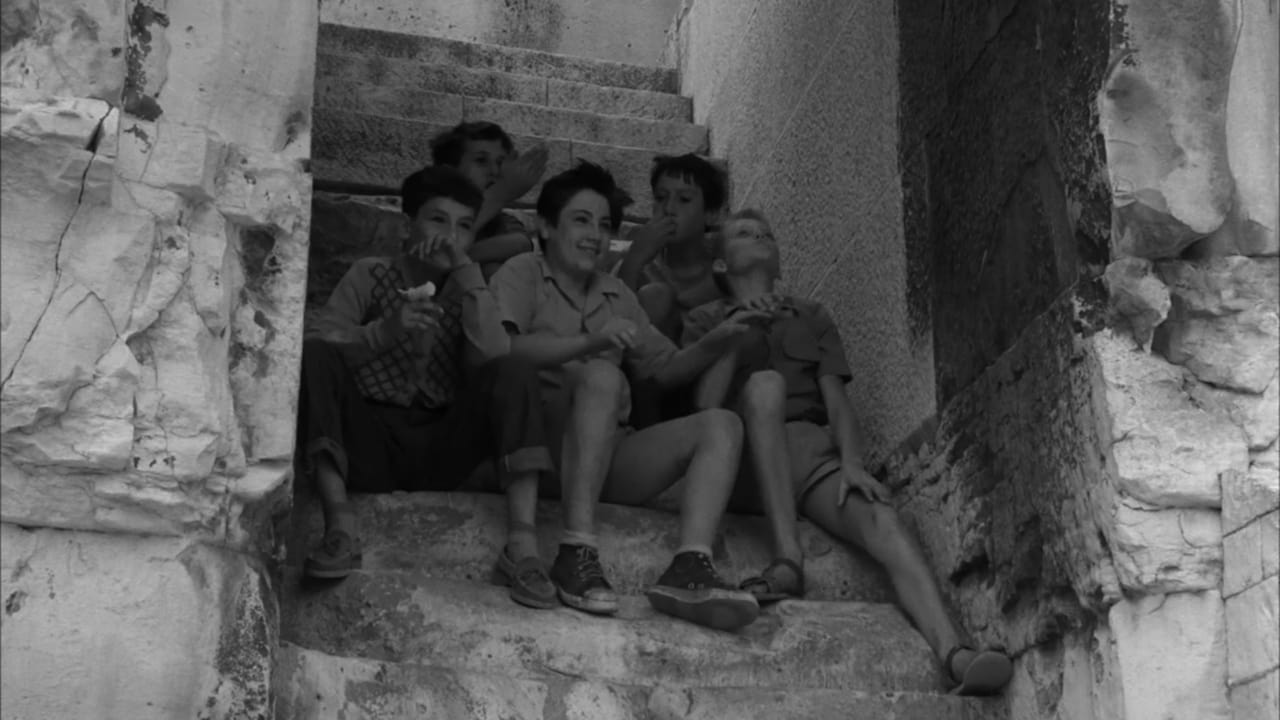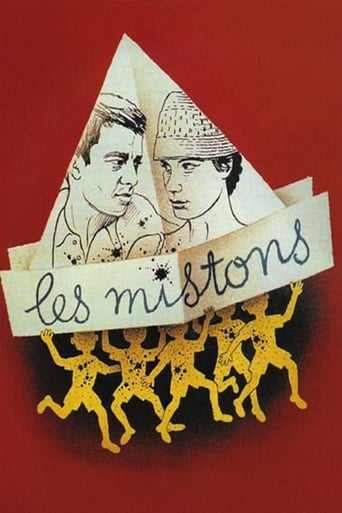Alicia
I love this movie so much
ScoobyMint
Disappointment for a huge fan!
mraculeated
The biggest problem with this movie is it’s a little better than you think it might be, which somehow makes it worse. As in, it takes itself a bit too seriously, which makes most of the movie feel kind of dull.
Ezmae Chang
This is a small, humorous movie in some ways, but it has a huge heart. What a nice experience.
SnoopyStyle
Five young boys are enamored with beautiful Bernadette Jouve. They follow her and her boyfriend Gerard around. They are young brats causing minor mischief. Gerard leaves for three months promising to marry her when he returns. However he dies on the mountain and she mourns for the lost.It's one of François Truffaut's early work and shows promise of some future greatness. When the kid starts sniffing her bike seat, that's the moment that he is bringing something different than Hollywood. The shots are beautifully constructed. It's a great coming-of-age story of love and lost. It is a complete emotional journey packed into a short seventeen minutes.
bob the moo
A group of boys adore a young lady who cycles around the area in loose skirts. Being too young to love her they decide to hate her and make her break up with her boyfriend. They follow her around and usually wind up watching the couple as they play tennis.An early short from Truffaut, this is a bittersweet tale that is less structured than experienced. The film is essentially about a group of boys who tease a young woman because they don't know any other way of expressing their lust for her. It is a little heavy on noise and action but it is still good at heart. I would have liked a little bit more in the way of character rather than the slightly pretentious (French!) dialogue that was delivered - it didn't do enough to help me inside the characters or their feelings, but I suppose I had enough to be able to work it out for myself.The film is visually quite stylish and reasonably well directed; although some of the shots will appear quite clichéd now (girl on bike etc) but it is still effective. If anything the lack of dialogue was made worse by the noisy shouting etc that dominated the film; I would have preferred it to be a bit more controlled as I found the noise grating and made it difficult to concentrate. The cast are mainly young children but the woman in the central role manages to appear alluring and `normal' at the same time.Overall, this film has meaning and is enjoyable and interesting, but it hurts itself in some regards. It is worth seeing if you have more than a passing interest in Truffaut but it is overlong for it's material, dragging some scenes too long and lacks a stronger narrative.
davehoward
Truffaut's early short moved me as much as almost anything he filmed. It's hard to believe that so much insight and humanity was crammed into such an early short piece. It's very easy to see the path from this piece to The 400 Blows. Not to be missed.
mike-544
Truffaut's first steps in filmmaking were towards adolescence and their response to the world. "Les Mistons" is not an enjoyable film probably because the young director captures beautifully the feeling of innocence and cruelty. It is a reminiscent film, keeping the viewers interested not just because it reminds them of their youth but also because of the rhythm: it's constructed like faded memories, and the passing of time comes in the end as a surprise. The opening shot, with a boy in his bicycle, is one of the most beautiful scenes ever filmed, as we instantly capture the essence of this truly unforgettable film. In French.

